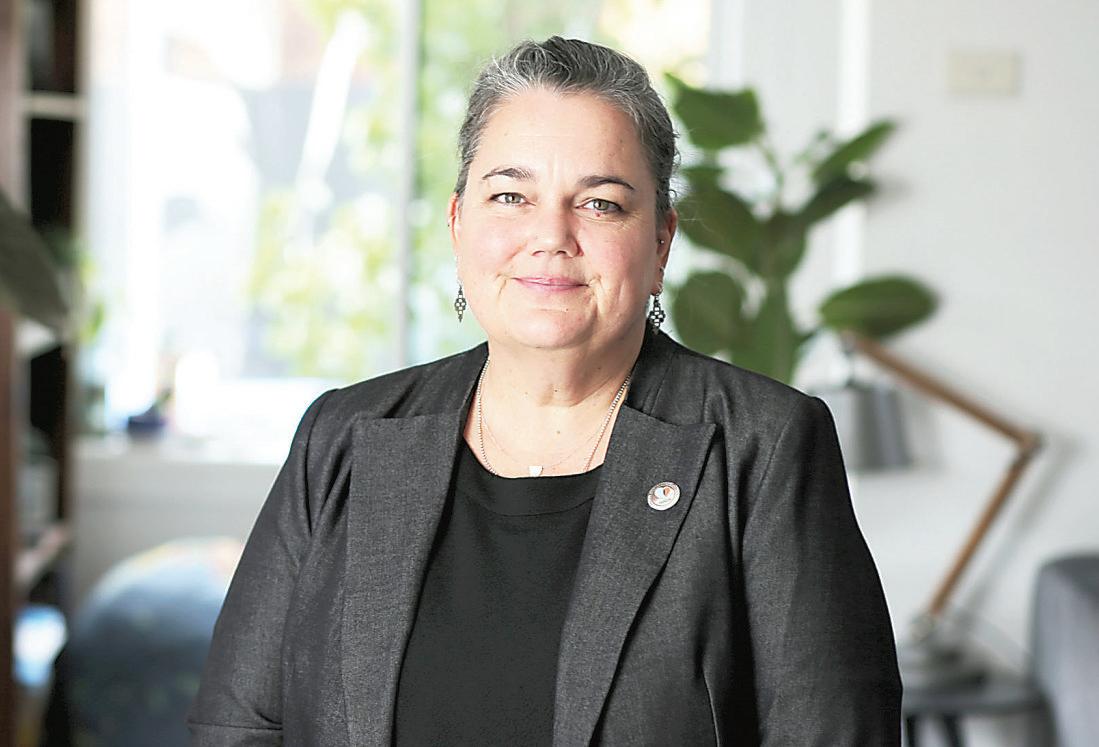
5 minute read
Calm
News Measles case detections
VICTORIA has recorded three new confirmed measles cases in returned overseas travellers. The Department of Health has issued a health warning, after three overseas travellers returning to Victoria returned positive for measles, with two of the cases infectious during a return flight from Singapore to Melbourne. There are two public exposure sites in Victoria linked to these cases, including Qantas flight QF36/Emirates flight EK5036, Singapore to Melbourne and Melbourne Airport, international arrivals, Tullamarine, on Tuesday, November 15 between 6.10am and 8.40am. Anyone who attended these sites is urged to seek medical care if they develop symptoms, to wear a mask, and call ahead to ensure they can be isolated from others. The illness usually begins with common cold-like symptoms such as a runny nose, red eyes and a cough, followed by fever and a rash. The characteristic measles rash usually begins three to four days after the first symptoms, generally starting on the face and then spreading to the rest of the body. Victoria’s Deputy chief health officer, Associate Professor Deborah Friedman, said measles is a highly infectious viral disease that spreads quickly with close contact, especially in those who are not fully vaccinated. “Young children and adults with weakened immune systems are the most at risk of serious illness,” Ms Friedman said. “People can develop pneumonia and other serious complications from the measles, and often need to be hospitalised.” Five measles cases have now been reported in Victoria since January 2022. Victoria’s recent measles cases have been identified in people who are not fully immunised against measles and who have travelled overseas or been in contact with returned overseas travellers. Anyone planning overseas travel should ensure they have received vaccinations appropriate for travel. www.gippslandtimes.com.au
Advertisement
Perinat al Health Week
Zoe Askew
AHHH, parenthood. What a magical, challenging, special, exhausting, wonderful time. Whether you are experiencing the joys of parenthood for the very first time, or bringing another little human into the world, there is much to love about that new baby cacoon. The smell of your baby’s head, how they flex their little hands and toes when they first wake from a nap, the unconditional love that rushes through you like wildfire ripping across dried grass. Parenthood also brings challenges never faced before. From cracked, bleeding nipples, insufferable isolation and sleep deprivation so severe you lose track of time, the day, hell, even the week. Every waking second is dedicated to this little human cradled in your arms, and self-care becomes a distant memory of the person you were before. For some parents, the weeks pass and sleep becomes more regular, life shifts into a manageable routine and before you know it, those days of falling asleep in the shower only to be wakened by the piercing cry of a tiny hungry human are forgotten. But for one in five new mums and one in 10 new dads, perinatal anxiety and/or depression affects the ability to function in daily life and enjoy the magical moments parenthood has to offer. Parents experiencing psychological and physical challenges from caring for a new baby without enough support, have prompted an increase in demand for perinatal mental health support in the 12 months to June 2022. Perinatal Mental Health Week was celebrated recently (November 6 to 13). Perinatal Anxiety & Depression Australia (PANDA) released new data, identifying a 0.3 per cent increase in demand for perinatal mental health support from June 2021 to June 2022, in addition to the 45 per cent demand increase throughout the pandemic. It is no surprise that in 2020, the Perinatal Anxiety and Depression Australia (PANDA) helpline doubled, as did call times, but PANDA chief executive Julie Borninkhof said there was an expectation that demand would ease as COVID restrictions were lifted. PANDA witnessed first-hand how communities changed during COVID, with fewer face-to-face healthcare visits and time with friends and family.
PANDA chief executive Julie Borninkhof.
Photo: Supplied
Sale mum Chelsea was among the first-time mums during the pandemic. “Everything that I expected wasn’t what happened; you have this idea in your mind about what being a mum is going to be like, what you want to be like as a mother,” Chelsea said. “It just wasn’t like that. “With COVID, there are no mum groups to prepare you or support you. Normally, mums go out and get together, they go to classes and learn how to swaddle and burp their baby, but I didn’t get any of that because we were in isolation or social distancing didn’t allow classes to run. “So, I just had this baby with no fricking clue what to do with it; it was so hard.” While lockdowns are a thing of the past; PANDA reveals that four in five new mums responding to PANDA’s mental health checklist in 2021-22 felt disconnected from their friends and family at some point, while 40 per cent of them said they felt disconnected from their baby. “These thoughts and feelings are very normal for new parents, but they can be hard to talk about, and it can be difficult for parents to reach out to others and let them know they are finding new parenthood challenging,” Ms Borninkhof said. “Parents need to find their own way of tapping into the communities of care that work for them, ideally starting before the baby is born. Preparing a community care plan is as important as all other birth preparations, and will ensure the support is in place from day one. “If people aren’t sure if what they are feeling is normal, or if they need some extra support or reassurance, please reach out. We are here to help.” Anyone having trouble coping with pregnancy, being a new parent, or wanting help building their community of care, can visit panda.org.au or call the PANDA Helpline on 1300 726 306.
















